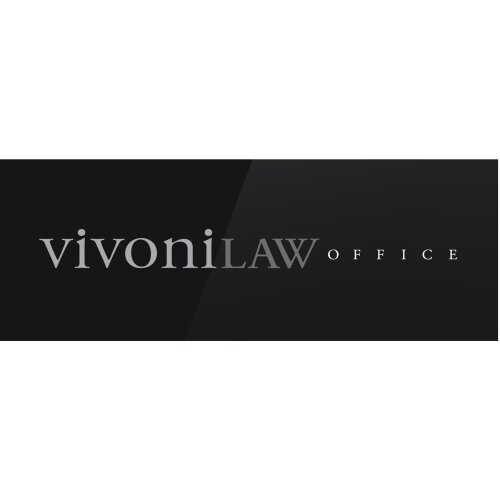Best Patent Lawyers in Puerto Rico
Share your needs with us, get contacted by law firms.
Free. Takes 2 min.
Or refine your search by selecting a city:
List of the best lawyers in Puerto Rico
About Patent Law in Puerto Rico
Patent law in Puerto Rico is governed by federal statutes as Puerto Rico is a territory of the United States. In the U.S. context, patents provide inventors exclusive rights to their inventions for a limited time, usually 20 years from the filing date. These rights help protect the inventors from unauthorized use, manufacture, or sale of their inventions. The U.S. Patent and Trademark Office (USPTO) is responsible for granting patents in Puerto Rico.
Why You May Need a Lawyer
Securing a patent can be a complex process that often requires legal expertise. Common situations where you may need a patent lawyer include:
- Conducting a patent search to ensure that your invention is novel and non-obvious.
- Filing a patent application with the USPTO and ensuring compliance with all procedural requirements.
- Navigating patent infringement disputes either as a patent holder or defending against such claims.
- Understanding the nuances of patent licensing and assignments.
- Compliance with federal patent laws and any applicable local regulations.
Local Laws Overview
While patent law in Puerto Rico largely follows U.S. federal law, there are unique local considerations to be aware of:
- Language: While English is the primary language of federal proceedings, legal processes in Puerto Rico often require translations and adaptations in Spanish.
- Legal Representation: It is essential to choose a lawyer familiar with both Puerto Rican legal customs and U.S. patent law.
- Local Judicial System: Understanding the local judicial structure can aid in navigating legal proceedings effectively.
Frequently Asked Questions
What is the first step in obtaining a patent in Puerto Rico?
The first step is conducting a patent search to ensure your invention is unique, followed by filing a patent application with the USPTO.
Are Puerto Rico patents valid in other countries?
No, patents granted in Puerto Rico are valid within the U.S. and its territories. For international protection, you must file separate applications in other countries.
How long does it take to get a patent?
The process can take several years, depending on the complexity of the patent application and any objections during examination.
What if someone is using my invention without permission?
You may need to file a patent infringement lawsuit to stop unauthorized use and potentially recover damages.
Can I file a patent application myself?
While possible, it is advisable to seek an attorney’s help to ensure all technical and legal aspects are adequately addressed.
What types of inventions can be patented?
Generally, processes, machines, articles of manufacture, compositions of matter, and improvements of these can be patented.
Is my invention protected during the application process?
An application gives you a "patent pending" status, which offers some level of protection, but full rights are granted upon the patent’s issuance.
Are there maintenance fees for patents?
Yes, once a patent is granted, maintenance fees at designated intervals are required to keep it in force.
Can patents be sold or transferred?
Yes, patents are considered property and can be sold, licensed, or transferred, subject to applicable laws and agreements.
What should I do if my patent application is rejected?
You may appeal the decision within the USPTO or amend the application for reconsideration.
Additional Resources
Consider these resources for further information and assistance:
- U.S. Patent and Trademark Office (USPTO)
- Puerto Rico Industrial Development Company (PRIDCO)
- Local law firms specializing in intellectual property law
- Puerto Rico Chamber of Commerce for business-related inquiries
- Online patent databases for research and information
Next Steps
If you require legal assistance in patent law, consider the following steps:
- Consult with a licensed patent attorney who is familiar with both U.S. and Puerto Rican law.
- Prepare detailed documentation of your invention and any relevant information.
- Define your goals, whether for protection, commercialization, or defense, and plan accordingly with your attorney’s guidance.
- Stay informed about any updates in patent law and adjust your strategy as needed.
Lawzana helps you find the best lawyers and law firms in Puerto Rico through a curated and pre-screened list of qualified legal professionals. Our platform offers rankings and detailed profiles of attorneys and law firms, allowing you to compare based on practice areas, including Patent, experience, and client feedback.
Each profile includes a description of the firm's areas of practice, client reviews, team members and partners, year of establishment, spoken languages, office locations, contact information, social media presence, and any published articles or resources. Most firms on our platform speak English and are experienced in both local and international legal matters.
Get a quote from top-rated law firms in Puerto Rico — quickly, securely, and without unnecessary hassle.
Disclaimer:
The information provided on this page is for general informational purposes only and does not constitute legal advice. While we strive to ensure the accuracy and relevance of the content, legal information may change over time, and interpretations of the law can vary. You should always consult with a qualified legal professional for advice specific to your situation.
We disclaim all liability for actions taken or not taken based on the content of this page. If you believe any information is incorrect or outdated, please contact us, and we will review and update it where appropriate.
Browse patent law firms by city in Puerto Rico
Refine your search by selecting a city.









